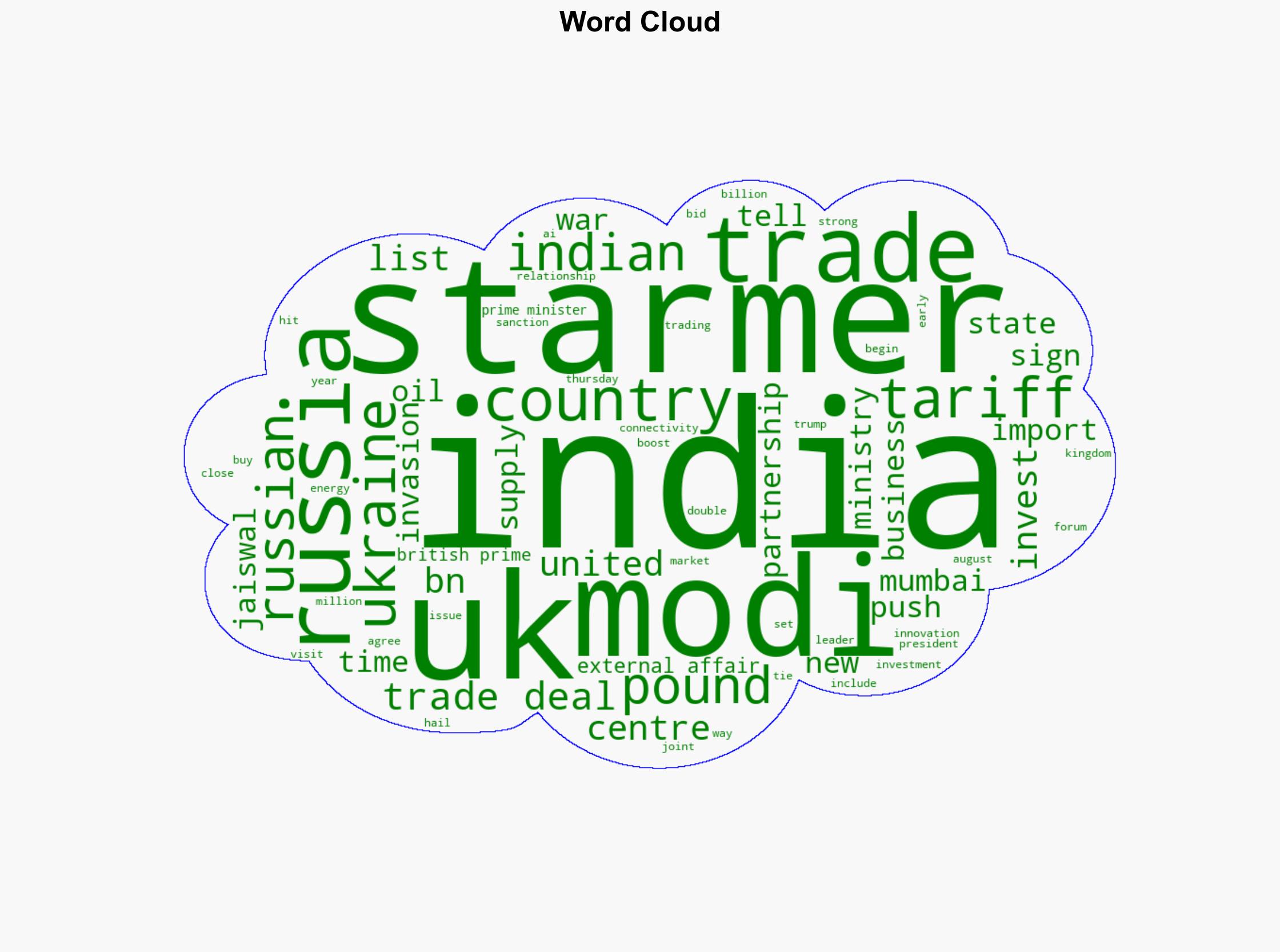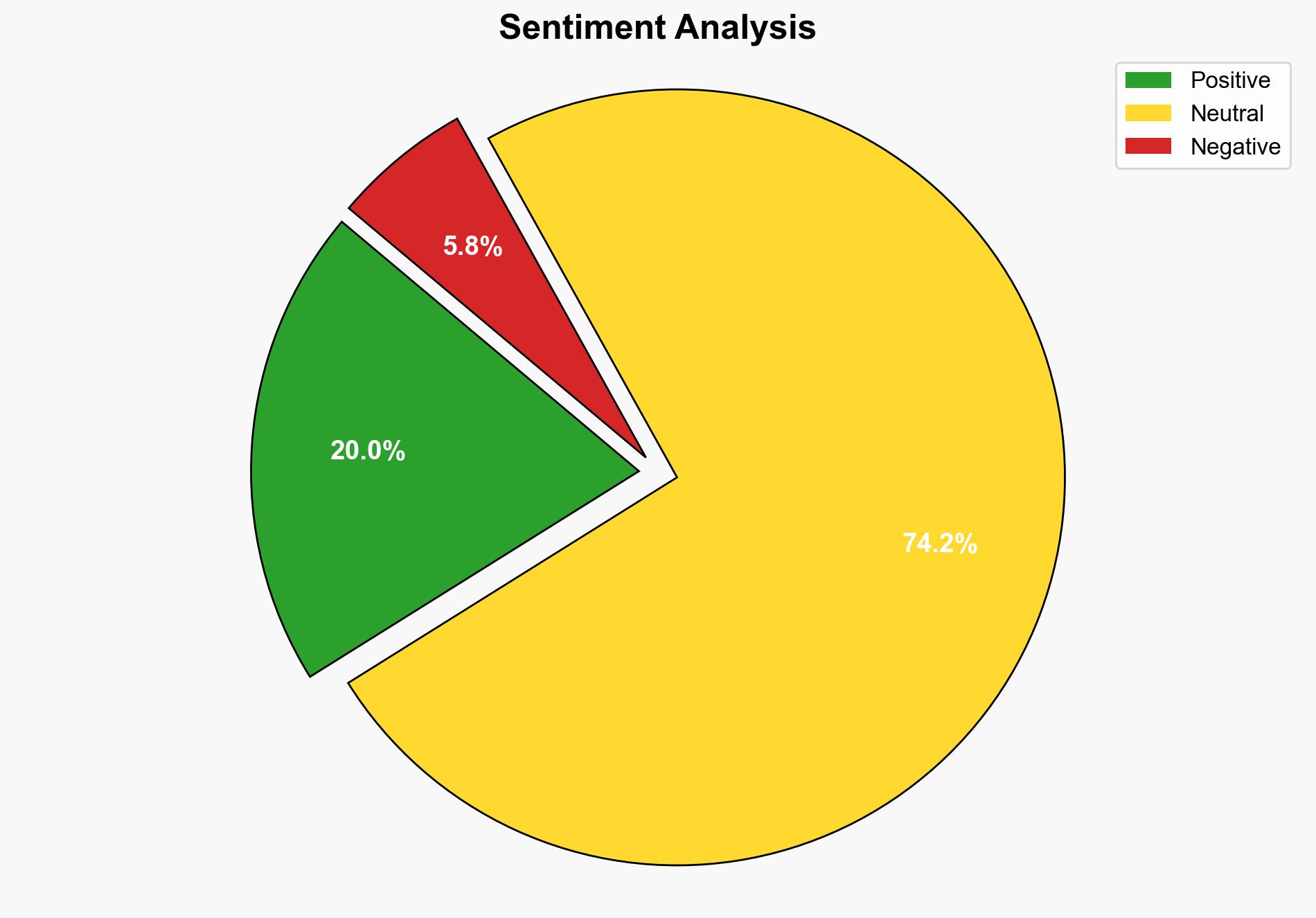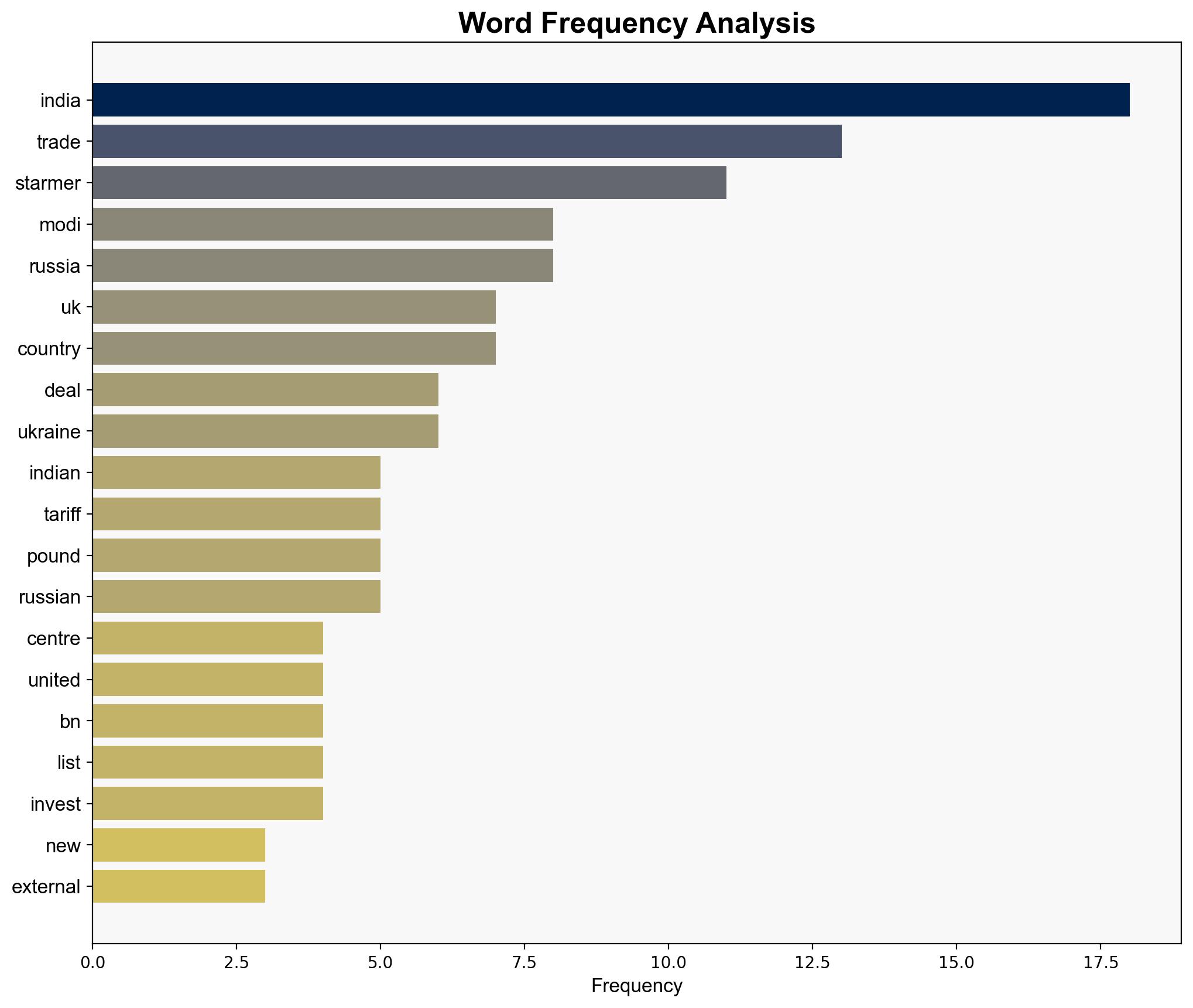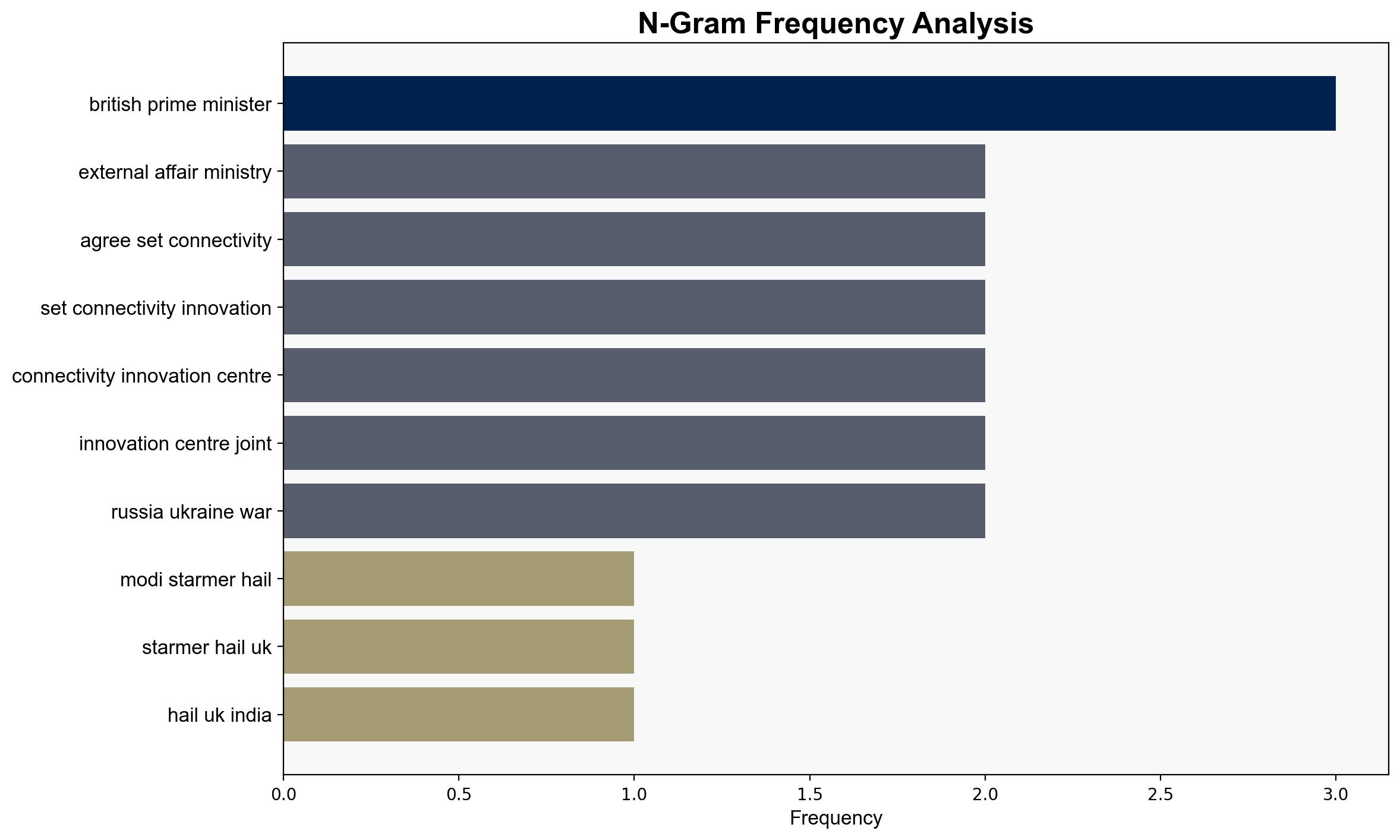Modi Starmer hail UK-India trade deal as new investment revealed – Al Jazeera English
Published on: 2025-10-09
Intelligence Report: Modi Starmer hail UK-India trade deal as new investment revealed – Al Jazeera English
1. BLUF (Bottom Line Up Front)
The UK-India trade deal, hailed by Narendra Modi and Keir Starmer, is strategically significant, potentially enhancing bilateral trade and investment. The most supported hypothesis suggests the deal is primarily aimed at economic diversification and reducing dependency on traditional partners. Confidence Level: Moderate. Recommended action: Monitor implementation and potential geopolitical shifts, particularly concerning Russia and China.
2. Competing Hypotheses
1. **Economic Diversification Hypothesis**: The trade deal is primarily designed to diversify economic partnerships, reducing reliance on traditional allies like the EU and the US, especially in light of recent tariffs and geopolitical tensions.
2. **Geopolitical Strategy Hypothesis**: The agreement serves as a strategic maneuver to strengthen geopolitical ties and counterbalance China’s influence in the region, while subtly addressing India’s ties with Russia.
Using ACH 2.0, the Economic Diversification Hypothesis is better supported by the evidence, including the focus on reducing tariffs and increasing market access, which aligns with economic objectives rather than purely geopolitical ones.
3. Key Assumptions and Red Flags
– **Assumptions**: The assumption that both countries will adhere to the terms of the agreement without significant political or economic shifts.
– **Red Flags**: Potential overestimation of the deal’s immediate economic impact; lack of clarity on how geopolitical tensions, especially involving Russia and China, will influence the deal’s execution.
– **Blind Spots**: The impact of domestic political changes in either country on the deal’s sustainability.
4. Implications and Strategic Risks
– **Economic Implications**: Potential boost in trade and investment, particularly in textiles, whisky, and technology sectors. However, the actual economic impact may be delayed by bureaucratic and regulatory challenges.
– **Geopolitical Risks**: The deal could strain relations with China and Russia, especially if perceived as aligning against their interests. Additionally, the UK’s stance on Ukraine could complicate India’s strategic neutrality.
– **Strategic Risks**: Over-reliance on this deal without contingency plans could expose vulnerabilities if geopolitical tensions escalate.
5. Recommendations and Outlook
- Monitor the implementation of the trade agreement closely, ensuring compliance and addressing any emerging barriers.
- Develop contingency plans to mitigate potential geopolitical backlash, particularly from China and Russia.
- Scenario Projections:
- **Best Case**: Successful implementation leads to a significant increase in trade and investment, strengthening bilateral relations.
- **Worst Case**: Geopolitical tensions derail the agreement, leading to economic and diplomatic setbacks.
- **Most Likely**: Gradual increase in trade with moderate geopolitical adjustments required.
6. Key Individuals and Entities
– Narendra Modi
– Keir Starmer
– Indian Ministry of External Affairs
– UK Business and Cultural Sectors
7. Thematic Tags
national security threats, economic diversification, geopolitical strategy, UK-India relations





